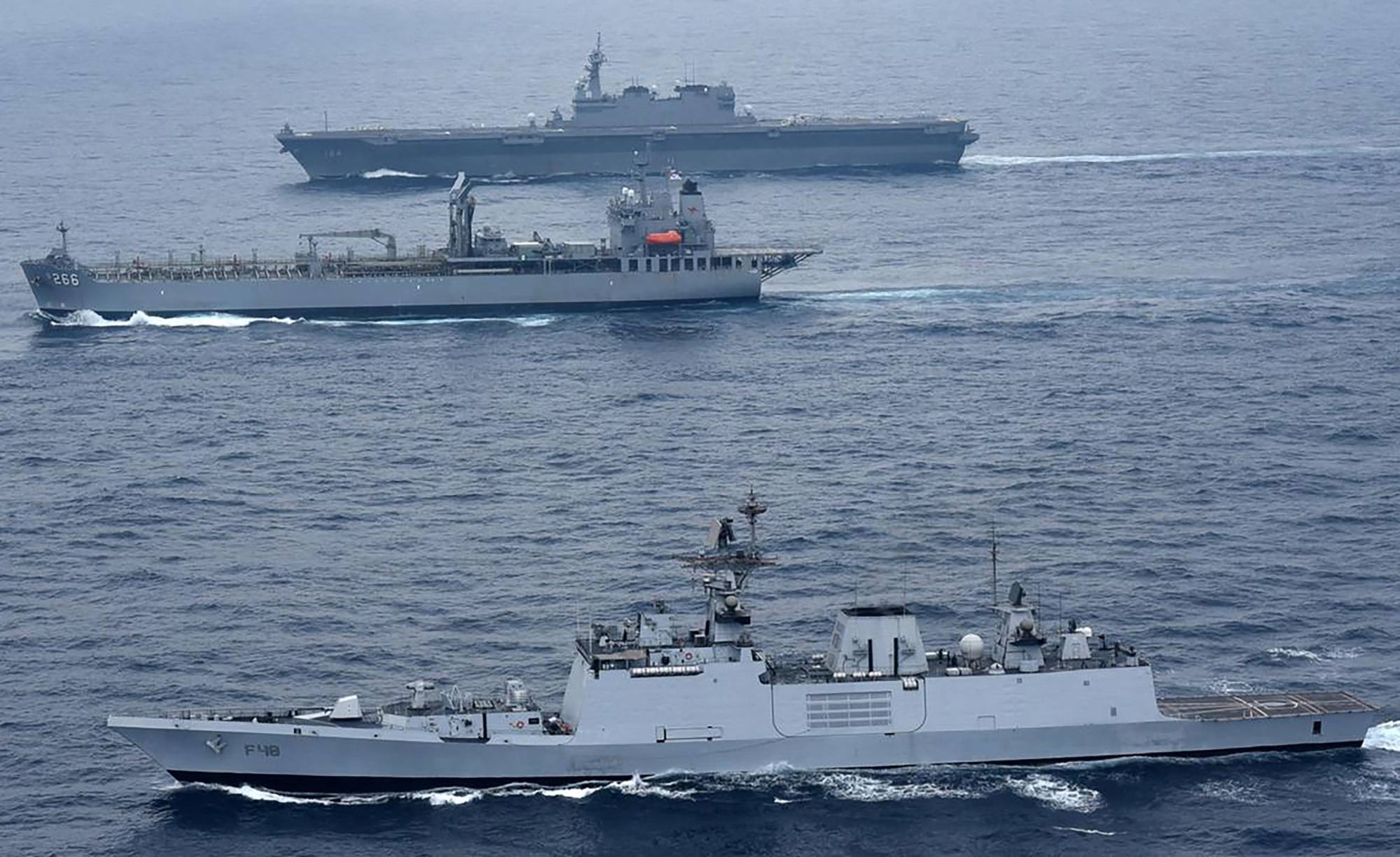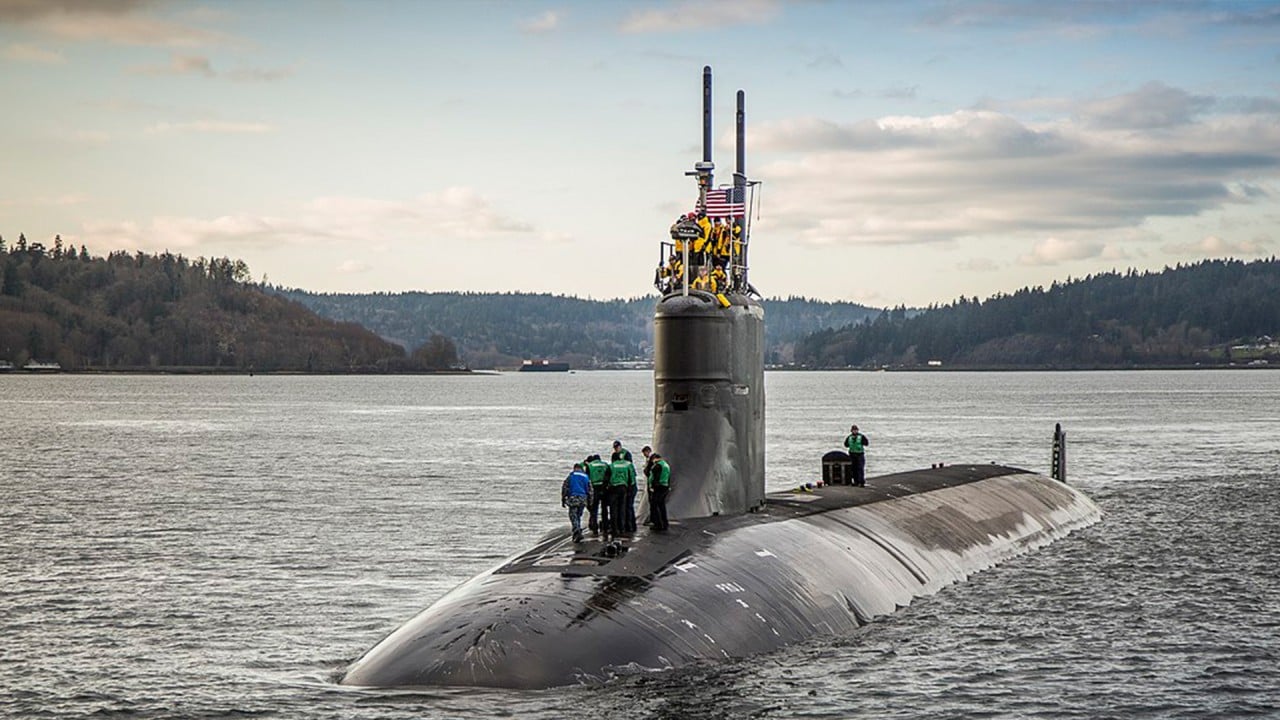
India’s US-Russia balancing act makes for an uneasy Quad alliance
- While India is cozying up to Australia, Japan and the US as part of the Quad, it is also a large customer for Russian arms and a Shanghai Cooperation Organisation member
- Meanwhile, the US’ double standards on India’s regulation of its waters calls into question the legitimacy of the Quad’s moral high ground
The sight of Soviet Sukhoi Su-30MKI jet fighters over Darwin during Australia’s 2018 Pitch Black exercise was unexpected. The Su-30s, part of the Indian Air Force, were practising cooperation with US and Australian air forces.
India’s defence and foreign policy profile under Prime Minister Narendra Modi is a balancing act in which India plants a foot in both camps. This makes for an uneasy Quad, although these anomalies are simply ignored by Australia and other Quad members.
Unlike the United States, Russia is willing to transfer cutting-edge military technology to India. Such a transfer would make interoperability exercises like that in Darwin in 2018 a very challenging proposition.
The SCO summit in November last year discussed progress on enhancing cooperation through connectivity projects and digital technology. This could include development of digital standards for cross-border transactions.
The SCO aims to create a region of mutually beneficial cooperation in Eurasia. This will be supported by the shared values and links between the people of the region to reinforce the principles of the SCO charter.

It is difficult to reconcile the application of these SCO objectives with the objectives inherent in the Quad alliance. The stresses in the Quad stem from more than just defence equipment orientations and competing political alignments.
The Quad claims the high moral ground when it comes to supporting, and enforcing, the international rules-based order which it believes Beijing should be forced to comply with.
Could Quad, Aukus boldness drive Europe into China’s arms?
However, New Delhi’s observance of the rule of maritime law is flexible. India has maintained a prior notification requirement for innocent passage of foreign warships in its territorial sea since 1976, much like China has maintained a prior authorisation requirement since 1992.
India’s laws and regulations related to its exclusive economic zone are contrary to the United Nations Convention on the Law of the Sea (Unclos) because they entail a wholesale extension of Indian law beyond the territorial sea.
This type of extraterritoriality is not recognised by the global rules-based order, although a blind eye is also turned to the US’ frequent application of extraterritorial penalties.
The underwater arms race: China, Aukus and a deepening sub rivalry
Sourabh Gupta, resident senior fellow at the Institute for China-America Studies in Washington, notes: “New Delhi’s regulations on oceanographic surveys, compulsory measures against foreign warships, establishment of restricted navigation zones, and entry and exit of hazardous cargo within its exclusive maritime zones … [exceed] the limits specified by Unclos.”
The US is not a signatory to Unclos so apparently what it accepts from some members of the Quad is not acceptable in the case of China. Just which part of the rules-based order is applied to China, but not to India, remains an unresolved question.

Military force without moral authority is the preserve of bullies and rogue states. Moral authority comes from abiding by the rules of international order that bind both alliance members and others.
A military alliance that does not abide by these standards fosters little respect beyond its members. Its motives remain suspect when it fails to abide by the rules it sets for others.
These double standards are a broader threat to the effective legitimacy of the Quad. However, it is the turning of the worm within the alliance that poses the most significant threat to the Quad’s integrity.
India’s continued dalliance with both Russia and China must throw into doubt its genuine commitment to the Quad’s objectives. Combined with New Delhi’s contempt for selected aspects of Unclos, this makes the Quad’s commitment to the rules-based order very questionable.
India is having a bet each way so its unclear just how many legs the Quad really has to stand on in an environment where trust, intelligence sharing and unity of purpose is paramount.
Daryl Guppy is an international financial technical analysis expert. The views expressed here are his own


